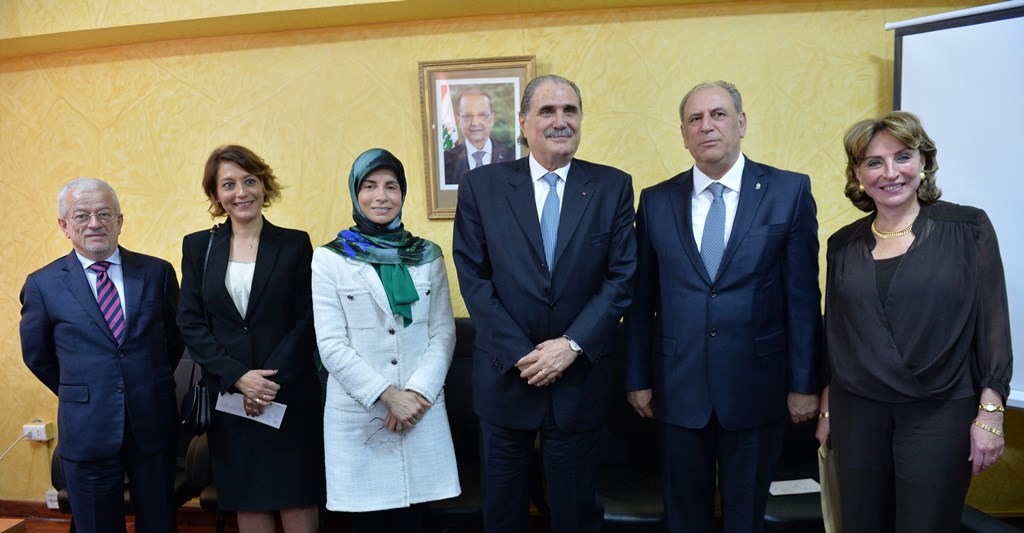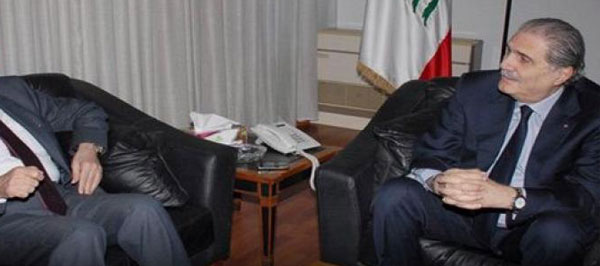COURTS > The Committees of Objection on Taxes and Fees Back
Article 62 of the regulation of the State Council (amended by Law Nº 227 date 31/5/2000) has abolished the committees of objections on direct and indirect taxes and on the “amiriya” and municipal fees imposed by the various laws on taxes and fees, and has referred all the pending objections before such committees by administrative method to the Administrative Courts according to its regional authority within one month from the date of entry into force of this law. The mentioned Article 62 supplemented that the concerned party should, in various issues of taxes and fees, present an objection before the competent financial department prior to submitting the case to the Administrative Tribunal, under the penalty of rejecting the objection, and the provisions of Articles 2 to 9 and Article 17 of Decree Nº 15 947 31 March 1964 remain in effect for this purpose concerning the determination of the objections procedures on the taxes, the fees and the delays to decide upon.
But, since the Administrative Courts, established under the amendment of the regulation of the Sate Council under the law Nº 227 dated 31/5/2000, were not constituted up to this date, as mentioned above, the provisions of the Decree Nº 15947 will be applied, which states that the objections on the taxes and fees, of whatever kind, are submitted to the competent Financial Department, directly or by mail, and that those objections, attached with the comments, are referred then by the mentioned department, within certain procedures and conditions, to the competent Committees of objections. The objector in person is also entitled, within certain procedures and conditions, to request referring the case to those committees. The Objections Committees apply the procedures adopted at the Administrative Courts to the extent permitted by laws and regulations on the concerned taxes without being bound by them literally; and they may carry out investigations as they deem beneficial and seek the assistance of expertise. They take their resolutions unanimously or by majority, the rapporteur counselor does not have the right to participate in voting, and their resolutions should be justified. The challenge or the appeal demands are submitted directly to the Sate Council.
Noting that the formation of the Objection Committees on taxes and fees are subject to the provisions stipulated in the laws concerning each of these taxes and fees, we recall some of them:
But, since the Administrative Courts, established under the amendment of the regulation of the Sate Council under the law Nº 227 dated 31/5/2000, were not constituted up to this date, as mentioned above, the provisions of the Decree Nº 15947 will be applied, which states that the objections on the taxes and fees, of whatever kind, are submitted to the competent Financial Department, directly or by mail, and that those objections, attached with the comments, are referred then by the mentioned department, within certain procedures and conditions, to the competent Committees of objections. The objector in person is also entitled, within certain procedures and conditions, to request referring the case to those committees. The Objections Committees apply the procedures adopted at the Administrative Courts to the extent permitted by laws and regulations on the concerned taxes without being bound by them literally; and they may carry out investigations as they deem beneficial and seek the assistance of expertise. They take their resolutions unanimously or by majority, the rapporteur counselor does not have the right to participate in voting, and their resolutions should be justified. The challenge or the appeal demands are submitted directly to the Sate Council.
Noting that the formation of the Objection Committees on taxes and fees are subject to the provisions stipulated in the laws concerning each of these taxes and fees, we recall some of them:
- The transfer fee on all rights, movable and immovable properties: Article 39 of the Legislative Decree Nº 146 issued on 12/6/1959, (related to imposing a transfer fee on all rights and on movable and immovable properties), provided that a first instance committee should be constituted by a decree in every province to examine and to adjudicate the objections, it is composed of: a Judge (appointed upon the proposal of the Minister of Justice) – as president, and one of the third category personnel from the Directorate of Incomes in the Ministry of Finance – as a member, and one of the owners in the province (selected by the Minister of Finance upon the proposal of the Director General of the Ministry of Finance) – as a member, and the president of the competent financial department or a person acting on his behalf as a rapporteur; and to each committee is attached a controller from the competent financial department as a clerk.
- The income tax: Article 94 of the Legislative Decree Nº 144 issued on 12/06/1959 (relating to the income tax) provided that one first instance committee or more should be constituted by a decree in every province to examine and to adjudicate the objections, it is composed of: a Judge (appointed upon the proposal of the Minister of Finance) – as president, and an employee from the Ministry of Finance belonging at least to the third category (chosen by the Minister of Finance) – as a member, and a representative from the Chamber of Commerce and Industry (appointed upon the suggestion of the President of the mentioned Chamber) or a representative of the Council of the province administration or the municipal council (chosen by the governor and appointed upon the proposal of the Minister of Interior where such chamber does not exist) – as a member, and the president of the Income Tax Department or an individual acting on his behalf as a rapporteur.
- The tax on Land: Article 52 of the Land Tax Law issued on 20/12/1951 states that the first instance committee to examine and to adjudicate the objections on land tax, in each province, is composed of: a Judge (appointed on the proposal of the Minister of Justice) - as president, an employee from the Ministry of Finance from the rank of an inspector or the president of the department at least (chosen by the Minister of Finance) – as a member, an agriculture expert (chosen by the Minister of Finance) – as a member, and an agricultural engineer (chosen by the Minister of Agriculture). The function of the Rapporteur of these committees is assumed by the competent financial officer.
- The Tax on built property: Article 89 of the built property tax law issued on 17/9/1962, provided that an objection committee on the tax on built property should be constituted in every province by a decree from the Minister of Finance as follows: One of the presidents of the civil Appeal Chambers, as president, one investigation controller, as a member, and a representative of the buildings owners chosen by the Minister of Finance – as a member. The president of the built property tax department in Beirut and the president of the regional financial department in the other provinces act as rapporteurs.
- The value added tax: Article 50 of the Law on the value added tax, Nº 379 dated 14/12/2001, states that one first instance or primary committee or more should be constituted by a decree in every province to examine and to rule over the objections, consisting of: an active or retired as honorable judicial or administrative judge, of the fourth Class and above, appointed on the proposal of the Minister of Justice after the approval of the Supreme Judicial Council or the bureau of the State Council- as president, and an employee from the Ministry of Finance, being at least of the third category chosen by the Minister of Finance – a rapporteur member, and a representative of the competent Trade and Industry Chamber chosen by the president of the mentioned Chamber - as member.
- The financial stamp: Article 103 of the Legislative Decree Nº 67 issued on 5/8/1967, (related to the financial stamp) states that a committee should be constituted by a decree upon the proposal of the Minister of Finance to examine and to adjudicate the objections on financial stamp, as follows: a judge (selected by the Minister of Justice) - as president, one of the employees of the third category in the Income Directorate - a member, a representative of the Association of traders or industrialists Association or the Association of banks Owners (selected by the Minister of Finance) – as member, and the president of the Department of indirect taxes - a rapporteur; one of the tax controllers in the Income Directorate (Department of indirect taxes) assumes the secretariat function of the committee.





